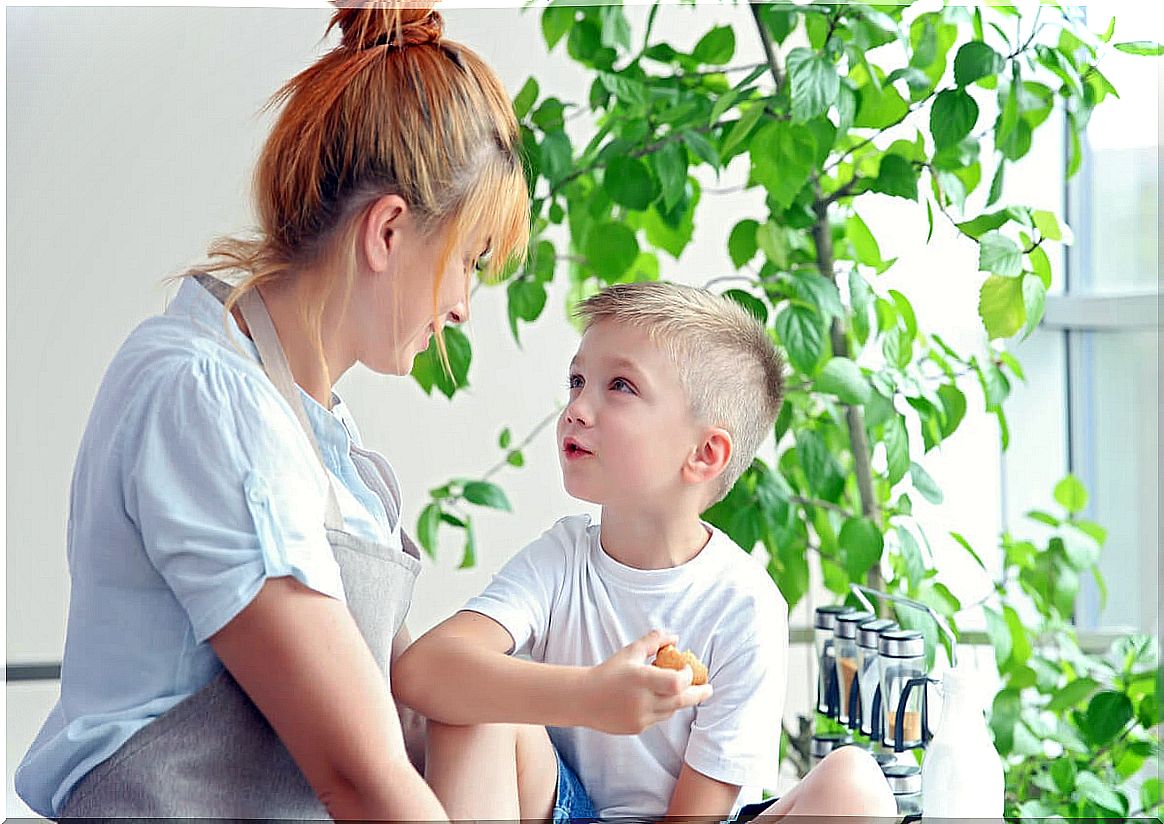The Importance Of Empathy When Talking With Children

Let’s put ourselves in situation. Suppose we have a child with serious difficulties organizing himself before going to school. We ask you to hurry, but you are flustered. Here, as parents, we can feel frustration because the little one cannot do something that for us is very simple. Thus, although we are aware of the importance of empathy when speaking with children, it is no less true that there are situations that put us to the test.
Although the reaction may be one of frustration because the child does not organize to do something that the parents see as a very simple action, are these adults being aware of the challenge that the child is facing?
So, what to do? As adults, getting frustrated and acting hot can lead to anger, arguments and, worse, transfer the frustration to the child himself. But is there a solution?
There is. It would be convenient to change the dynamics, contain the gestures of frustration and incorporate empathy into communication. If we put ourselves in their relationship, while still being adults, we can help them.

Empathy
The professor of the School of Education and former director of the Center for Research on Leraning at the University of Kansas Donald Deshler considers that empathy is a way of connecting with the child, telling them with our feedback that we know the emotions they are experiencing.
Deshler believes that it is important for children to be able to process the message we send them when we empathize with them : they are not alone, we want to understand their feelings and support them at all times.
Therefore, both Deshler and other professionals estimate that we can find four basic components in empathy for talking with children. These would be:
- Consideration of the other person’s point of view trying to look through the child’s eyes.
- No hasty judgments and conclusions.
- Understanding the feelings of others. In this case, we will be understanding with the child’s feelings, without exaggeration, with sincerity.
- Understandable communication with the child from a point of view adapted to his needs. We do not try to solve your problems, but we do let you know that we understand them and we can help you.
The emotions
Although they are familiar terms, let’s not confuse empathy with emotions. In this case, we are not pitying the other person. We let you know that we understand you and that we are aware of the challenges you face and how they affect your emotional state.
That is why it is important to put yourself in the place of the little one, with his mind less developed than ours. So we will know why the boy acts as he does. And it is very necessary to connect with the child on an emotional level, understand him and accept him. Only then can we accurately understand their feelings and behaviors.
Therefore, to establish a communication that helps him, we will let the little one recognize the emotions in us. Thus, child and adult, we will share feelings and understand the other’s point of view, so that we can help the child in a more effective way.

Empathy for talking with children
How can we talk to children being empathetic? Let’s give a simple example:
- Suppose the child has failed a subject at school. It is common to say something like: “if you had tried harder, surely you would have passed.”
- Well, it is not interesting to use these terms from an empathic point of view, since we do not recognize their feelings. Nor are we taking into account the obstacles that may have caused the child to fail that subject. Thus, it is difficult for our words to be the match that lights the fuse of change.
- How would it be convenient to act? For example, constructing the sentence in this way: “I know you don’t like this subject very much, but is it possible that you could have studied more? Be that as it may, how can I help you so that it is not so difficult for you? “
In this way, the child not only feels understood, he also finds in you a help or a resource to do what you encourage him to do. If you feel lost, you will know who to turn to. On the other hand, if you reach an agreement, it will be easier for him to fulfill it because the little one now feels that you form a team.
Therefore, in summary, empathy is the cultivation of closeness, the best starting point for them to receive the message that they can count on us. On the other hand, it is a skill that requires practice and a good dose of self-regulation, but without a doubt the results of using it are worth it.









